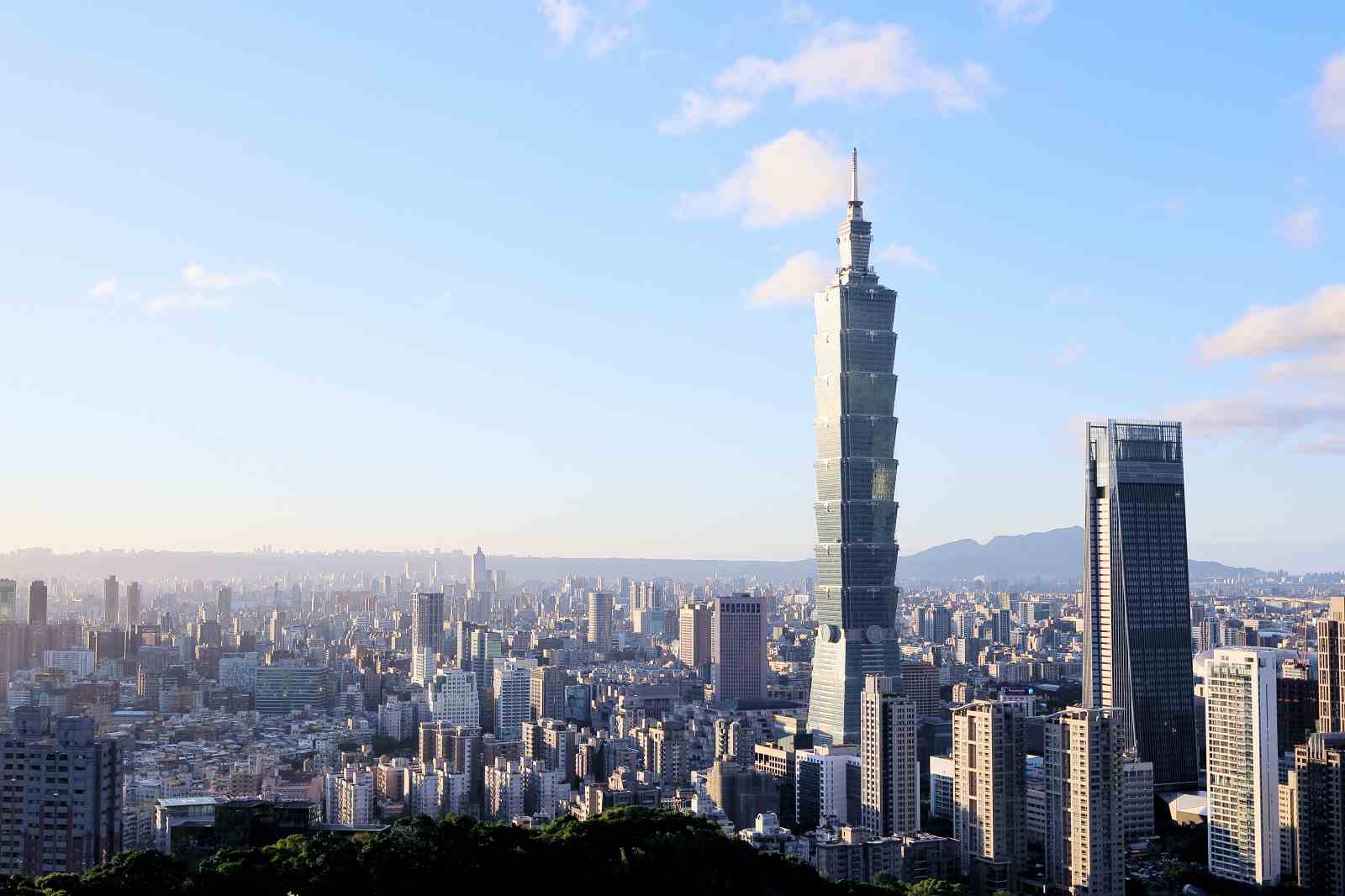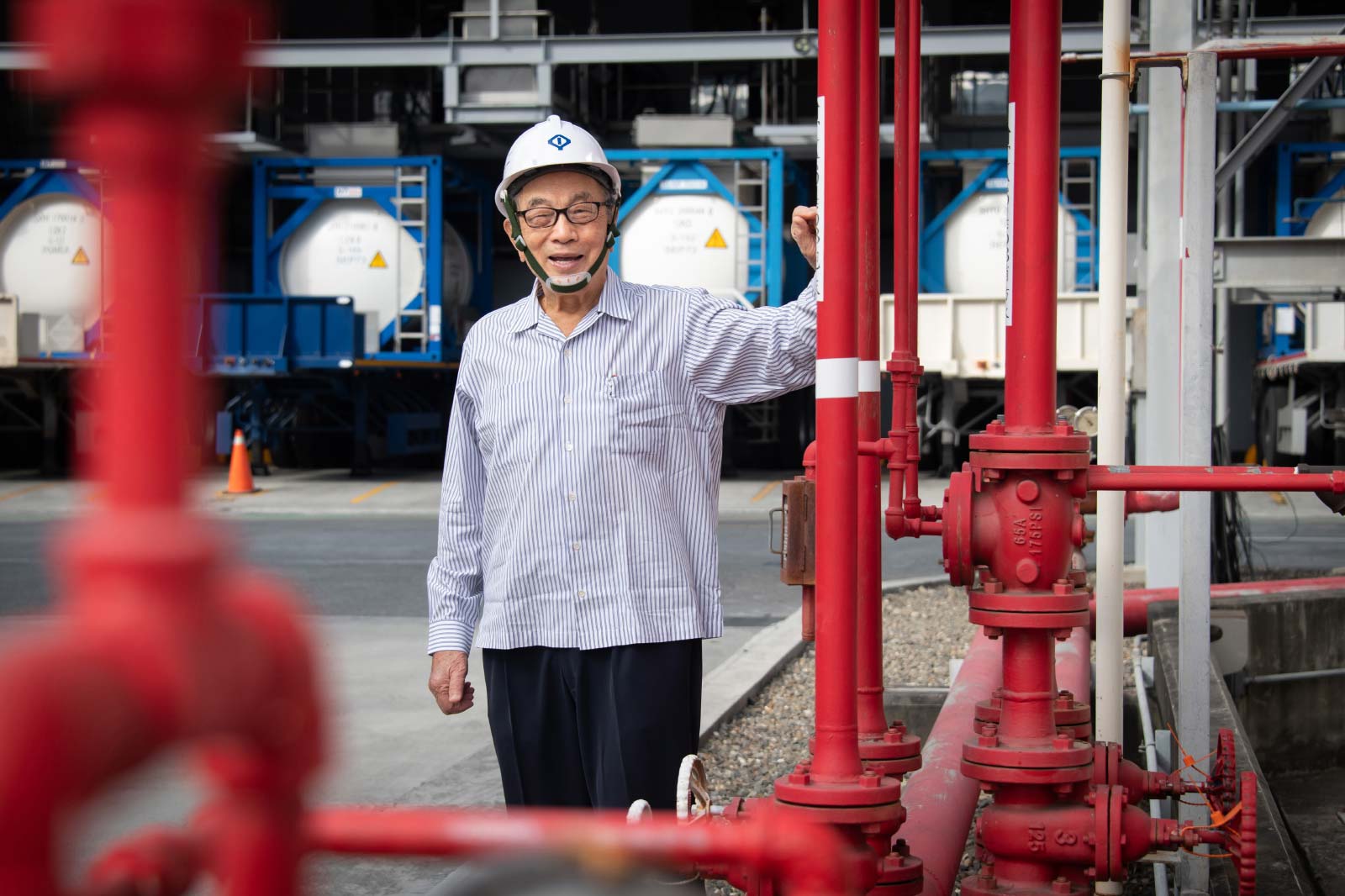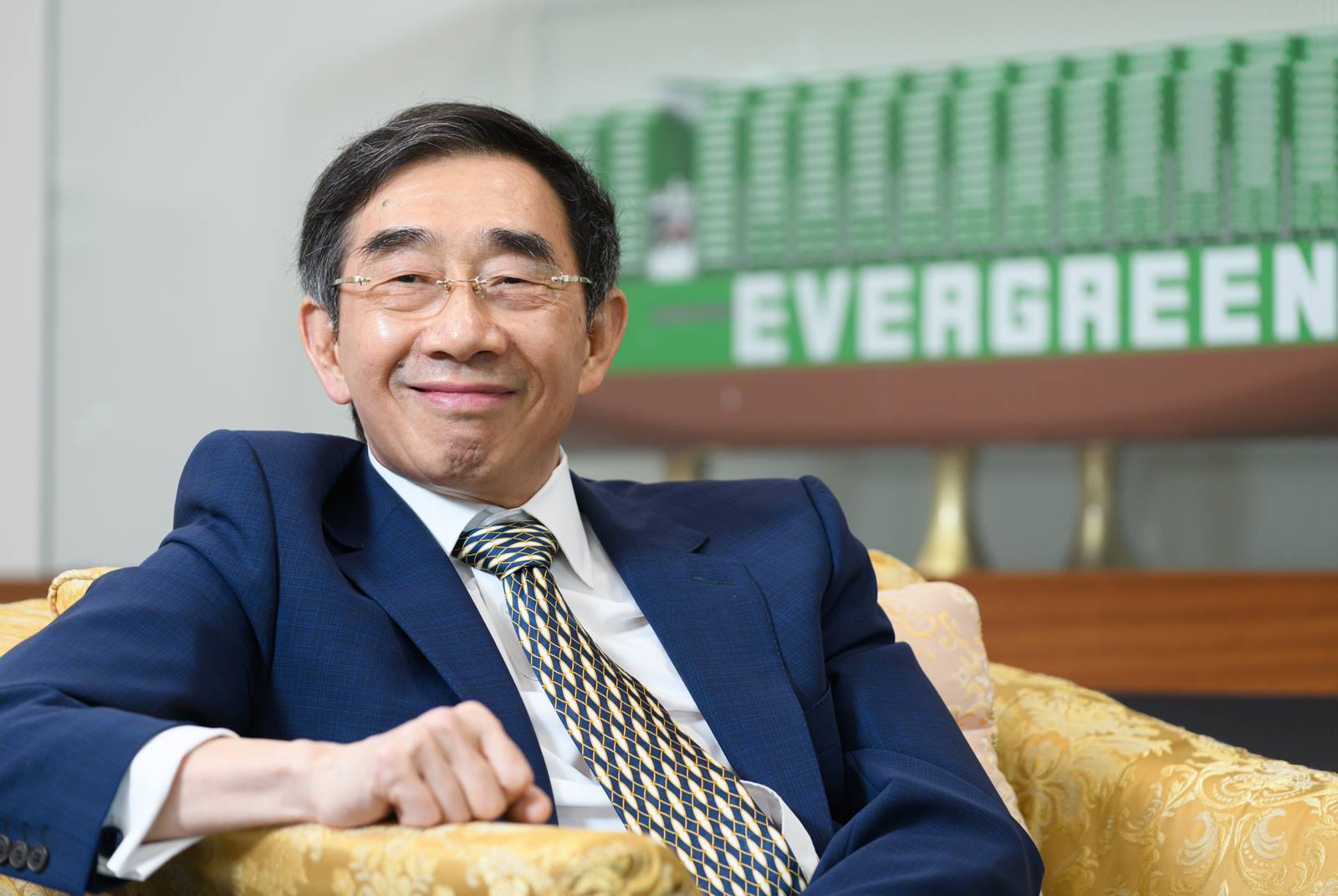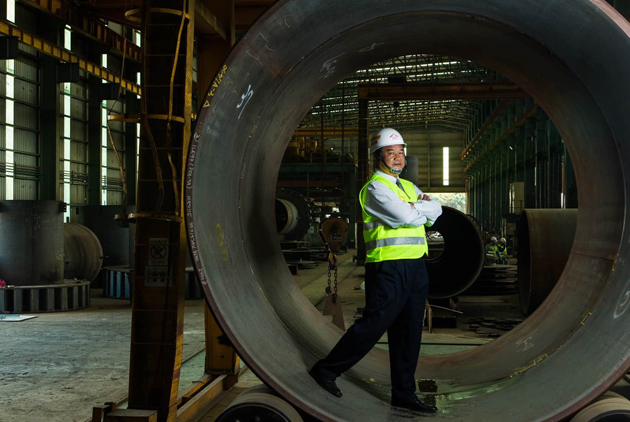Taiwan Makes a Stand in the Talent War
2011 Most Admired Company Survey

Source:cw
Taiwan's top-level talent is being seduced away by high pay offers, forcing the country's most admired companies to use emotional appeals to hold on to their prized executives. Is the strategy working?
Views
2011 Most Admired Company Survey
By David Huang, Benjamin Chiang, Jerry LaiFrom CommonWealth Magazine (vol. 482 )
"Mr. Cui, you've walked too far," says Nansen Liang, CEO of Longhood HR Consultation Corp., as he takes a call during an interview with CommonWealth Magazine. "You should use the Guting rapid transit station's No. 2 exit and then walk back about 35 steps and you'll be there. OK. I'm waiting for you." He is speaking to a client from a Chinese food and petrochemical group looking for a potential corporate vice president to run a petrochemical facility.
Liang says that offering pay increases of 1.5 to 2 times their current levels is a standard condition for poaching talent, and if housing allowances, bonuses and even educational fees for the candidates' children are added in, the offer can reach 2.5 times existing pay levels.
The petrochemical sector isn't the only industry under assault. Semiconductors, mobile phone design and other mature fields where Taiwan has an edge have all been targets. More recently, neighboring countries headhunting in the country have targeted versatile executives in hotel management, as well as in the franchise and chain business and travel and leisure sector, which are highly in demand in China. Taiwan's benchmark "Most Admired Companies" have particularly felt the sting of this "predatory poaching."
Determined to Get Their Man
Taiwan Business Bank chairman Peter T.C. Lo says Taiwan's financial services sector has already undergone two waves of mass shifts in talent, one in the 1970s when foreign banks were allowed into the country and the other when the banking sector was deregulated in the 1990s.
"Taiwan's banks heading to China and opening the way for Chinese financial groups to come to Taiwan will be the third wave," Lo predicts.
In an interview just after stepping off the plane on his return from Singapore, Andrew Yang, managing director of Ozific International Consulting Co., Ltd., says that neighboring countries have mounted much more aggressive recruiting campaigns since last year. Where in the past recruiters would only go after those who expressed an interest in a career change, headhunting has entered a new era of "stealing talent away" at all costs.
Foreign companies used to be willing to wait three to six months when they came to Taiwan to recruit talent, Yang says, but now they'll wait up to 18 months, and they no longer target a single top executive but try to plunder entire teams from their employers.
The incentives can be clearly seen in the case of 32-year-old William, a former mid-level manager at a large Taiwanese mobile phone contract manufacturer. He was responsible for smartphone development and earned about NT$2 million a year, including bonuses.
He recently received a call from a headhunter informing him that China-based Lenovo Group Ltd. was willing to offer him NT$3.5 million a year, plus project-based bonuses and a housing allowance.
"When you added it up, the pay was double what I was making in Taiwan and it gave me a chance to gain work experience in China," he muses.
William also reveals that Lenovo wanted to go through him to recruit his company's entire mobile phone development team. "When the head of the team gets stolen away, the entire string of talent gets poached too," he says.
The phenomenon has become a headache for more than just Taiwan's most admired companies.
Five years ago, the Taiwan Institute of Economic Research conducted a study on Taiwan's net talent migration. After excluding foreign laborers, it found that Taiwan still had a net inflow of professional talent, from engineers to financial specialists.
But a similar study by Academia Sinica, presented in March, found that Taiwan now suffers from a net outflow of top professional talent.
Fighting Back against Talent Predators
S.C. Huang, CEO of Deloitte Taiwan who also served as a consultant in the Hsinchu Science Park, Taiwan's high-tech bastion, for over 10 years, summarizes the predicament faced by local high-tech businesses:
"Taiwan abandoned the employee profit-sharing system that set it apart and further tied companies' hands by requiring shared profits to be treated as an expense. But the high-tech sectors of China and other neighboring countries are replicating the incentives that made Taiwan so successful, so it's only natural that mid-level talent and engineers are heading abroad," Huang says.
Huang has always opposed treating employee dividends as expenses, shaking his head in dismay at Taiwan's decision to conform to international norms by accounting for profits shared with employees in the same way as stock options are accounted for overseas – as expenses. The change in accounting rules took effect at the beginning of 2008.
"Under Taiwan's employee profit-sharing system, profits are only shared when a company makes money. That is when employees have helped shareholders create profit. With stock options, employees get shares before results are delivered. The two should not be discussed in the same breath," Huang says.
Under heavy assault, Taiwan's most admired companies have launched new methods to aggressively retain talent.
Taiwan Semiconductor Manufacturing Company (TSMC) chairman Morris Chang initiated a comprehensive mentoring system soon after returning as the company's CEO.
Over the past two years, he has asked TSMC's 10-plus vice presidents to recommend seven or eight people from the roughly five dozen managers under them as candidates for Chang himself to mentor. Aside from being exposed to a year of training, they are also compensated at a level similar to their American counterparts.
Among CommonWealth Magazine's most admired companies, Chi Mei Corporation emerged as the most highly regarded in the petrochemical industry for cultivating talent. The company's newly appointed president, Lin-yu Chao, personally leads senior executives in fully participating in Chi Mei's eight-month training program for base-level managers.
For an interview with CommonWealth Magazine, Chao brought with him a vice president, a section chief and a manager.
Undaunted by the threat of foreign competitors poaching talent with attractive compensation packages, Chao says, "I don't believe people are that cheap. But the relationship between employee and employer has changed. What we need to do more is to see what Chi Mei can give to employees."
Cultivating Managers In-house
Both mentors and coaches can help their companies cultivate future successors in house.
Citibank Taiwan Ltd. managing director Christie Chang is a typical Citibank product, rising from management associate all the way to managing director over her more than 20-year career at the bank.
In 2008, Chang went to Citibank headquarters in the United States for a week of leadership training. Before she left, the bank's headquarters had already chosen a coach for her, ready to discuss with Chang questions about her future development.
The coach already had in hand responses from her supervisor, colleagues and subordinates to a comprehensive 400-500 question survey on Chang that covered everything from her personal characteristics to her management style.
Six months later, a similar survey was conducted, enabling Chang to realize how much she had improved and the expectations that other members of the organization had of her.
"This model of training exists at all levels. We believe that the coach-driven training model is as important as formal course training," says Jessie Pai, the director of human resources at Citibank Taiwan Ltd.
How Deep Is the Talent Bench?
In the talent cultivation category of CommonWealth Magazine's Most Admired Company Survey over the past 10 years, AU Optronics Corp. has ranked in the top 10 six times.
"AUO's succession planning has been very complete," says Wen-jeng Lin, an associate professor at National Central University's Graduate Institute of Human Resource Management. Lin, who has closely observed AUO's training program for executives at a vice presidential level and higher, says all senior executives must be part of a talent management committee and nurture the company's next level of succession talent.
The results of the program became evident in August 2010, when a number of top AUO executives were barred from leaving the United States because of a price-fixing case. The company, which has 40,000 employees worldwide, suddenly seemed rudderless.
But AUO's succession system shifted into gear, and a new management team immediately took shape, stabilizing employee morale.
"The most important job of the human resources department is helping AUO nurture a deep bench of talent," says Bryan Kuo, director of the company's human resources strategy division.
The deeper a company's talent reserves, the less it fears being caught short of talent when launching a new business. But the key to a human resources department making full use of its arsenal is whether it has the support of the boss.
In Taiwan's high-tech sector, K.Y. Lee, the chairman of the BenQ-AUO Group, is well-known for the emphasis he places on education and training. He has created Taiwan's biggest corporate training base – called "Mabuville" – in Beipu, Hsinchu County. When new AUO employees start their jobs, they first report to Mabuville for a week of training.
"Add to that the system of rotation between global branches and business units, through which local experts become global talent and eventually emerge as core management talent," says Kuo, who in his eight years at AUO has been rotated to a new position about once every two years, which has helped him develop the habit of seeing problems from different angles.
Deepening Informal Bonding
Aside from mentors, coaches and classes, Taiwan's enterprises have relied increasingly on informal bonding activities to deepen relationships between management and employees.
Chi Mei's Chao, for example, puts on his sportswear whenever time permits to play softball on weekends with the company's employees.
Chi Mei's softball league, dubbed "the world's biggest club," is composed of 10 teams and plays on a dedicated softball field that was built by the company near its factory complex.
"What Chi Mei provides is a sense of family. It not only takes care of its employees, but also their families," Chao says.
Google Taiwan also saw a new social group set up recently – Women@Google. Nicki Hsu, the manager of the company's People Operations, says it's impossible to pinpoint the number of groups like this that have been set by company employees.
"We believe that employees can decide what they want for themselves. This kind of learning is the most interesting and effective," Hsu explains.
One employee recently sent out an e-mail right before lunch inviting others with similar interests to catch a movie that afternoon, a fairly common occurrence at Google.
Hsu explains that the company allows employees to be extremely independent and it trusts that they have a reason for doing things that may seem unorthodox. That high level of trust helps generate a strong degree of team cohesion.
"When people are that close, there's no way of not knowing who is truly talented," Hsu says.
It cannot be denied, however, that the compensation being offered by Chinese enterprises to top people far exceeds that which Taiwanese enterprises can pay, and they are now not only targeting the cream of the crop, but also mid-level managers responsible for day-to-day operations.
Deloitte's Huang says that no matter how strong Taiwan's most admired companies are, the government must urgently come up with human resource policies that address issues ranging from citizenship to the tax system. Otherwise, Taiwan-based enterprises will be mere bystanders as Singapore, South Korea and other neighbors relentlessly snatch up Taiwan's top talent.
Translated from the Chinese by Luke Sabatier





